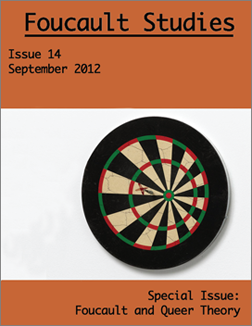On Historicity and Transcendentality Again. Foucault’s Trajectory from Existential Psychiatry to Historical Epistemology
DOI:
https://doi.org/10.22439/fs.v0i14.3904Abstract
In this paper I focus on the emergence of the concept of the “historical a priori” at the origin of Foucault’s archeology. I emphasize the methodological function of this concept within Foucault’s archaeology, and I maintain that despite the different thesis it entails as compared to its philosophical sources, it pertains to one of the main issues of phenomenology, that is, the problematization of the relation between reality as it appears in its historicity, and transcendentality. I start from the interest of the young Foucault in existential psychiatry, and I focus on the French philosophical context in which Foucault’s Introduction to Ludwig Binswanger’s “Dream and Existence” (1954) was conceived. My aim is to show that the first “phenomenological” phase of Foucault’s work is coherent, from a methodological point of view, with the development of archaeology intended as “historical epistemology.” I conclude by arguing that Foucault’s archaeology is methodologically linked to Canguilhem’s epistemology, in that the latter presents itself as an important attempt at linking together historicity and transcendentality.Downloads
Published
2012-09-17
How to Cite
Basso, E. (2012). On Historicity and Transcendentality Again. Foucault’s Trajectory from Existential Psychiatry to Historical Epistemology. Foucault Studies, (14), 154–178. https://doi.org/10.22439/fs.v0i14.3904
Issue
Section
Articles
License
Authors retain copyright to their work, but assign the right of the first publication to Foucault Studies. The work is subject to a CC BY-NC-ND 4.0 license, but despite these restrictions, authors can take for granted that Foucault Studies will permit articles published in Foucault Studies to be translated or reprinted in another format such as a book providing a full reference is made to Foucault Studies as the original place of publication.



